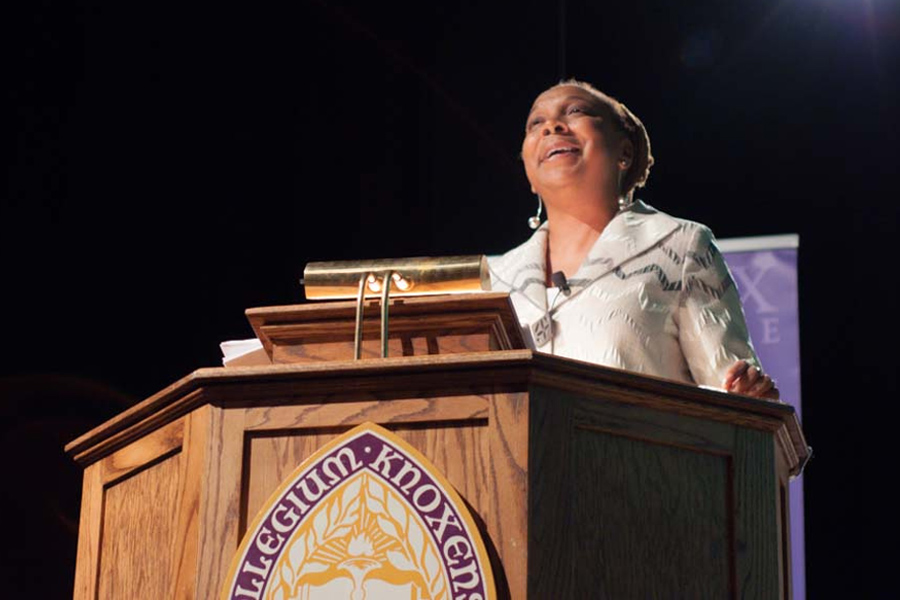Knox Stories
Michael Takeo Magruder Named First Knight Fund Distinguished Artist-in-Residence
Knox College will host its first-ever Knight Fund Distinguished Artist-in-Residence, Michael Takeo Magruder, from September 16 to September 30, 2025
Venture Boldly

Office of Communications
2 East South Street
Galesburg, IL 61401


by Elise Goitia '18
Kimberlé Crenshaw, a well-known scholar of gender and racial issues in modern day society, recently journeyed to Knox College to speak about the crossroads between discrimination, sexism, and racism, or what she dubs "intersectionality."
"Intersectionality has become a ubiquitous buzzword, yet intersectional failures are widespread and harmful with respect to public policy," said Crenshaw during her lecture on April 30.
Students who filed into Harbach to listen to the speaker left with a feeling of empowerment.
"As a youth activist, being able to come to this and seeing one of my idols was really amazing," said Caleb Gumanow '18. "It gives people who don't normally have that information knowledge that they didn't have before."
As she spoke, Crenshaw brought to light nuances of modern-day racism and sexism that occur every day, including in-depth comprehension of police brutality, statistics of disproportionate racial discipline in educational structures, and the paradox of "intersectional failures of the past" that creates an opening for post-racialism to shape current justice and social norms.
"I'm a secondary ed major, and I'm very aware of the disproportionate amount of black men that are disciplined in our school systems. I wasn't aware that that number was even higher for black women. It was very eye opening," said ChanTareya Paredes '16. "There are a lot of things that we as a community don't know. Her talk gave me solidarity, a 'hey, you're not going crazy. This is actually happening.'"
Crenshaw, who is the founding coordinator of the Critical Race Theory Workshop, co-editor of the book Critical Race Theory: Key Documents That Shaped the Movement, and co-founder of the African American Policy Forum, also talked about the marginalization of women of color in an oppressive culture and the continued furtherance of their unequal standing in court, schools, and other institutions. At the end of the lecture, she showed a short video of other women and men of color, speaking up about their past experiences and their determination to make a difference.
"All of it was inspiring," added Paredes. "There was not a single time when I was sitting there and not nodding my head, or I was not learning something. There was not one moment when I was not being reaffirmed in my understanding of what I know to be true. The hope is that it makes an impact. I think it will."
The Student Senate Diversity Committee collaborated with the Office of the President, Dean of the College, Dean of Students, Cultural Events Committee, and the Janet Greig Post Fund to sponsor Crenshaw's lecture, which was part of Diversity Art Month.
Published on May 13, 2015